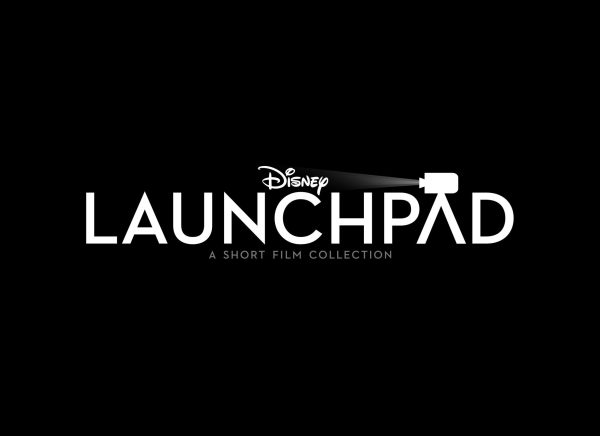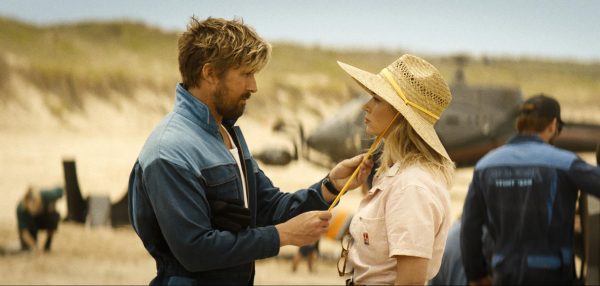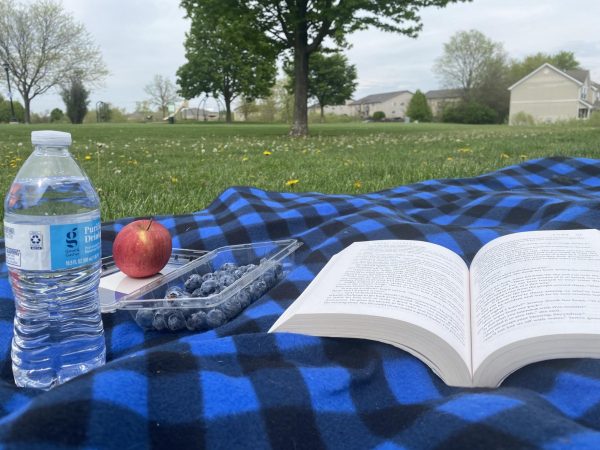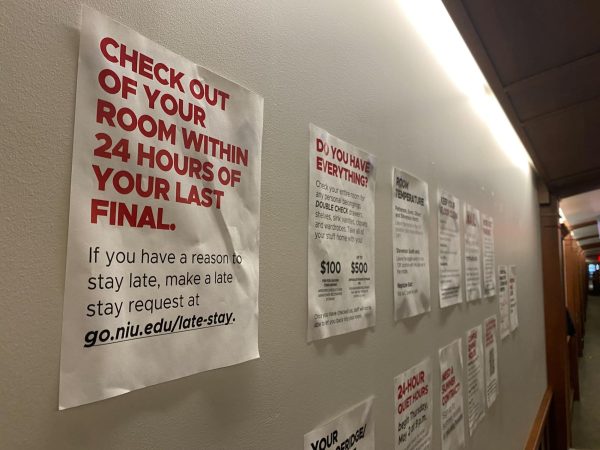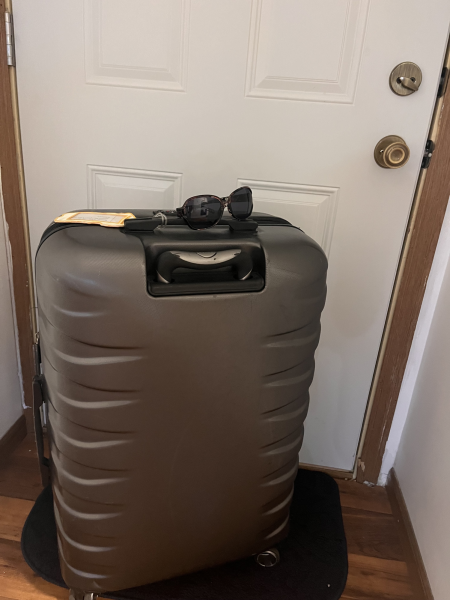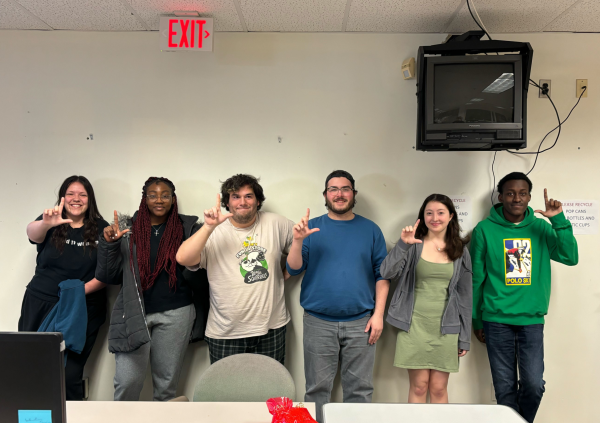Alumnus connects decades of writing in trilogy
October 7, 2014
Alumnus Richard Engling fuses experiences with “things just totally invented” in portions of his trilogy, which will be released today.
The Afterlife Trilogy covers more than 35 years of writing and includes work from author Fern Chertow, who died in 1988. Chertow’s novel, “She Plays in Darkness,” is part of the trilogy.
Northern Star: Can you elaborate on your friendship with Fern and why she was such a big inspiration for this trilogy?
Richard Engling: Well, Fern and I went to graduate school together in ’76 to ’78. We were in the fiction writing program, the master’s degree at Indiana University Bloomington. And we become very close friends there … .
We had that in common, that we had worked in a performance art before coming to fiction writing, and that became a huge part of our identity — to be fiction writers and novelists in particular — and was something we learned to do together … .
And after graduate school, we both went to Europe for a year, and we were in Paris at the same time … . So we continued to have a very intimate friendship over in Paris working on our respective novels.
NS: Are some of the characters that you write about based off of your friendship with Fern or was it more about themes?
RE: … There’s a character that’s inspired by me and one inspired by her. But, it is a real blend … of things taken from life and things just totally invented.
NS: Even though one story doesn’t depend on the other, why did you still feel they should connect as a trilogy?
RE: I wrote the novel first, ‘Visions of Anna,’ and I wasn’t thinking of being part of anything else. Then I got the idea for the play, which is not an adaptation of the novel in any way. Although we revisit these two characters again, and … some of the historical things are similar, but it’s a totally different story. And there are a number of different characters who appear in the play.
As I was writing the play, I went back and looked backed at some of Fern’s manuscripts, which I had. That is when it started occurring to me what an interesting journey it would be for an audience member to read two books and then see the play.
So, I took that to Polarity Ensemble Theatre, which I’ve been involved with… . That’s why we’re releasing the books now a number of months before the play comes out, so that we can work with book clubs and create some experiences for the people who want to engage in this.
Then, when the play comes around, we would have a number of special performances where afterward there would be a discussion with me and the cast and the people who had done the reading — to talk about what it was like going through that entire experience. Because we were so excited with the idea of working with book clubs, we didn’t want to leave anyone out of that. So the theater company is actually setting up a local book club… .
NS: Fern’s ‘She Plays in Darkness’ was written in the ’80s. You wrote the novel ‘Visions of Anna’ in the ’90s.
RE: That’s when I conceived it, and then I was working at it for quite a while. I actually continued to rewrite it almost up until when I got the idea for the play. I worked on it very slowly.
NS: So going off of that, what was the experience like of connecting such a large span of time?
RE: I think there’s a big difference in a sense between … ‘The Visions of Anna’ and ‘Anna in the Afterlife’ in that way. The character of Matthew is younger. He’s in his like early 40’s in ‘Visions of Anna,’ and then he’s 10 years or more older in ‘Anna in the Afterlife.’ So it has a different point of view and it changes what kind of work each one is.
NS: What made you decide ‘Anna in the Afterlife’ should be a play?
RE: … There’s peculiar demands for a play. It has to be on a stage. It has to be spoken by actors. A lot of times the idea will suggest itself in a way were that will just not work. There’s no way where I could do what I did in ‘Visions of Anna’ and put it on a stage. You know, a play is more the size of a short story. A novel is much, much bigger, and you can do so many more things in a sense than what you can do in a play … .
NS: You said in an interview that you felt robbed of something by Fern’s death, and you weren’t quite done with it as an artist. Has writing ‘Anna in the Afterlife’ help answer more of those questions as an artist?
RE: … . You know, one of the things that I find very often when I approach a work is I’m actually writing a work because I want to know about something rather than I already know it. The writing becomes an adventure of discovery. Dealing with a close friend’s death, we all kind of wonder what happens afterward, right? But, we’re not going to know that. Who knows if we’ll ever know that.
So, you just have to make some choices and look for some inspiration. I had to answer the questions in doing it. I’m not saying my answers are right, but I really look to subconscious cues. I try to stay open to the voices that speak to me … . Sometimes, dreams give me ideas or I’m just writing along and following whatever it is that I’m writing. If something will come to me, I’ll just not censor it and put it down.
NS: Did any of those subconscious cues or dreams really stick out to you in particular?
RE: … Well, one of the things I noticed that was kind of uncanny, when we were working on editing Fern’s book, ‘She Plays in Darkness,’ I really noticed that there were some similar themes that had popped up in my work that I hadn’t realized were there in her’s… . I had, of course, read her manuscript a long time ago, but I hadn’t been reading it while I had been writing those pieces. It was only after I had finished them, looked back at it again, and it might have been 20 years ago that I had read those manuscripts. I had looked at it and thought, ‘Well, this is unusual that, that popped up in both … .’
NS: As a theater major at NIU, did you know as a student you wanted to be a playwright or a novelist or were you also interested in acting? What was your experience like with that?
RE: My drive was to be an actor. My main dream was to work in an ensemble company where I could … encompass all parts of the theater/artist world: where I could direct, where I could design, where I could write plays. When I was at Northern, I was studying all of those things so I could do every one of them … . I only thought of myself writing plays, I wasn’t thinking of writing novels. But as I took those classes, I found I really enjoyed writing fiction… .
NS: What is your advice for students interested in becoming an author, playwright or any type of writer?
RE: I think the biggest thing is that you have to write a lot and that you shouldn’t be too attached to that the first things you write. Especially as a playwright, plays are relatively short and the same thing is true with short stories. I think it’s a really good practice to write a lot of them and your first ones, don’t get stuck on trying to rewrite them for years trying to make them perfect. … You have to practice a ton and that means writing a ton of different things usually before you’re any good.
I think I became really comfortable as a writer after I’d written probably a half of a million words. … And the more you write, the easier it becomes. It can feel like torment trying to get yourself to work at the beginning. I found that after I had written quite a bit, I could sit down and really enjoy it. …
NS: Is there anything else you’d like to add?
RE: Years ago, I was editing … an issue of ‘Research & Development’ magazine, and we hired [author] Raymond Bradbury to do an editorial for us … . And one of the things he did was he protected his time. He would only accept phone calls between noon and 1 [p.m.]. If you didn’t get him between that period of time, you were going to wait until the next day … . He was working. That’s why he was able to be so prolific — because he just didn’t allow interruptions. That was a huge lesson.
NS: Do you feel like you’ve applied that to your writing and working?
RE: … As a freelance writer, I have to be more available to my clients than he would be. But, yeah, definitely when I’m working on a first draft, I will get out of my office where I do all my other work and go to a café and turn off my phone and not hook up to the Wi-Fi with my computer and just be unavailable when I’m working on first drafts … .




